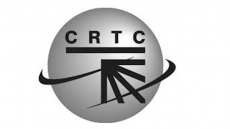OTTAWA — The Conservative government has quietly tightened the lid on federal cabinet secrets in an effort to prevent compromising leaks.
A revised policy on the security of so-called cabinet confidences requires all possible breaches — "however slight" — to be immediately reported to the Prime Minister's Office or officials in the Privy Council Office, the government's bureaucratic nerve centre.
"This includes unauthorized disclosure, loss, theft, transmission and discussion over non-secure channels, unaccounted documents or other actual or suspected compromises."
In order to avoid such incidents, documents known to contain cabinet secrets must now be stamped "Confidences of the Queen's Privy Council."
The Canadian Press obtained a copy of the new policy, along with a memo explaining the changes, under the Access to Information Act.
In addition, the Privy Council Office approved a complementary plan to digitize its archive of cabinet documents to allow for storage of the paper originals off-site in a secure, climate-controlled facility — a bid to avoid the sort of damage caused by a major flood in 2001.
The confidentiality of cabinet proceedings — the political forum in which ministers make government decisions — is a long-standing constitutional convention and the cornerstone of the Westminster style of government, notes the new security policy, adopted last July. It replaced one in effect since 2007.
The government's original aim was to update the policy in 2012 to address events that are blacked out of the heavily censored explanatory memo of April 2014 to Wayne Wouters, then the Privy Council clerk.
Raymond Rivet, a Privy Council Office spokesman, would not elaborate, saying only that "PCO regularly reviews its security policies and strives to update them approximately every five years."
In 2008, Maxime Bernier resigned as foreign affairs minister after acknowledging he left classified documents at the Montreal home of his former girlfriend for more than a month.
Two years later, the RCMP carried out a five-month investigation into an alleged leak of cabinet documents concerning federal interest in the F-35 stealth fighter before shutting down the probe due to lack of evidence.
The driving force behind the revamped policy seems to be "a clear desire to tighten up the security of these records after the Bernier affair and perhaps other lapses less well known," said Wesley Wark, a security expert and visiting professor at the University of Ottawa.
A key challenge, says the memo, is distinguishing cabinet secrets from other types of sensitive documents in order to restrict access to those who have a valid need to see them.
The new policy does not expand the definition of a cabinet confidence but broadens the scope of a security breach to cover virtually all possibilities.
"Any security incident involving cabinet confidences, however slight, must be immediately reported to the PCO Security Operations ... or through the Prime Minister's Office switchboard," says the 13-page policy.
The affected departmental security officer is also to be notified.
Unless directed otherwise by PCO, the security officer is expected to conduct an initial administrative inquiry to determine what happened and identify corrective action.
The security officer is also expected to keep the PCO's director of security and emergency management apprised of the situation.
The Privy Council clerk, following consultation with the relevant deputy minister, may ask the RCMP to step in. The Mounties will then decide whether to investigate.





